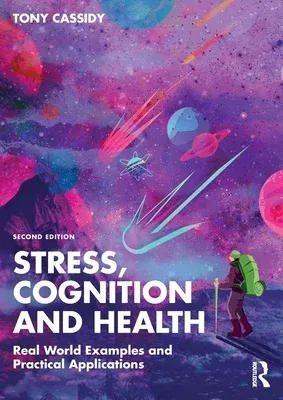The new edition of this bestselling textbook provides a comprehensive
overview of the latest research on stress and health, moving beyond the
former deficit model to a resource growth model. It examines all aspects
of the topic, from how the external world and the impact of technology
makes demands upon individuals, through biological and psychological
processes, to outcomes in terms of health and well-being. The process is
set within a dynamic, multilevel systems and developmental lifespan
perspective.
The book includes a history of the evolution of stress research and the
biological systems and immune responses that translate external
pressures into health outcomes. It considers the role of personality and
cognition in terms of appraisal and coping strategies set within a
social ecology of power and support. The role of positive psychology in
terms of resilience, psychological capital, and self-compassion brings
the area up to date in considering the benefits as well as the threats
of stress on health and well-being. An integration of issues of
importance in stress research is provided with some suggested guidelines
for both research and practice. Issues around prevention and
intervention are discussed to reduce stress and increase resilience in
families, schools, workplaces and communities, and suggestions for the
future development of the field are presented.
With an engaging style, the book is equally accessible to the layperson
and the scientist, the practitioner and the academic. Providing a basis
for further exploration of the vast area of stress and health, it is
valuable reading for undergraduate and postgraduate students and those
working in organisations with an interest in understanding and
preventing or alleviating stress.

